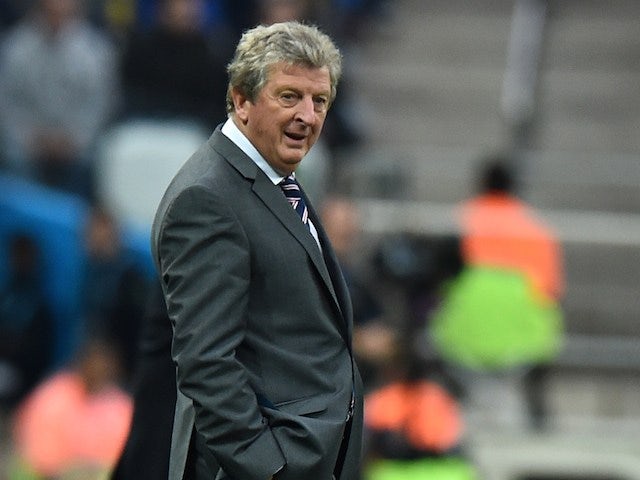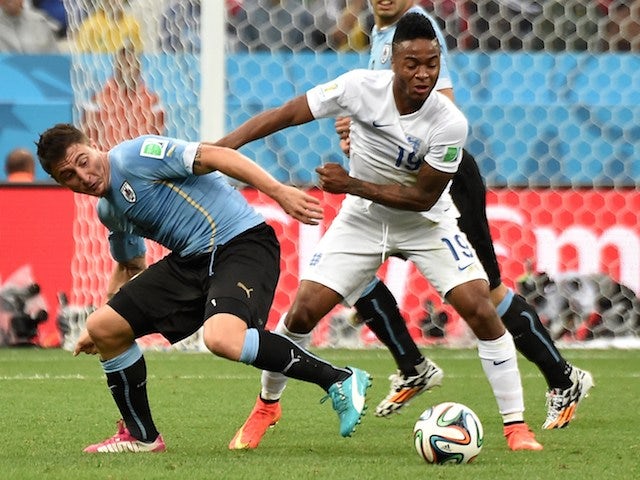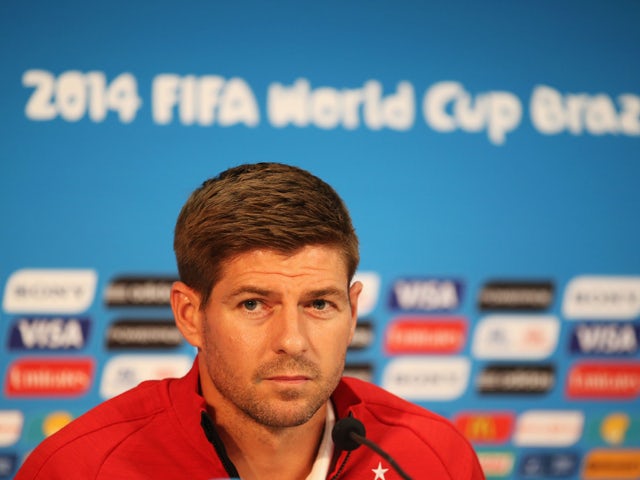Can you smell that? It's a familiar whiff, isn't it? It surfaces roughly once every couple of years when England exit a major tournament and is commonly known as 'The Blame Game'.
Less than 24 hours after Group D's supposed whipping boys Costa Rica had confirmed England's departure from this summer's World Cup by defeating Italy 1-0 in Recife, fingers have been jabbed in all sorts of directions. Wayne Rooney bore the brunt of the criticism in the wake of the loss to the Italians in Manaus a week ago, while Liverpool's trio of Steven Gerrard, Jordan Henderson and Glen Johnson were roundly chided as their club teammate Luis Suarez left the Three Lions teetering on the edge of elimination on Thursday night.
Phil Jagielka and Leighton Baines - pillars of consistency with Everton - it has been claimed were shown to be not of international quality, whereas many believe that the buck should ultimately should stop with the man at the helm - Roy Hodgson.
Indeed, there are some supporters and journalists that believe that Hodgson should be handed his P45 before he has even returned to English shores. After all, they say, he's taken charge of the first England side to fail to get beyond the group stages of a World Cup since 1950, when they were famously toppled by the Americans in Belo Horizonte.
 © Getty Images
© Getty Images
Hodgson, though, can be forgiven for feeling that he is damned no matter what he does. Four years ago in South Africa, Fabio Capello's England snoozed their way through a group that contained the USA, Algeria and Slovenia playing the type of football that would send a can of Red Bull to sleep. That was followed by brutal humiliation as the Germans recorded a 4-1 victory (a scoreline that flattered England) in the last 16.
Capello vacated his position with just a matter of weeks left until Euro 2012, leaving Hodgson, his replacement, with a free swing of sorts. He'd little time to work with the squad, yet they collected seven points from group matches with France, Sweden and co-hosts Ukraine, before the dreaded penalty shootout returned to haunt England in the quarter-finals against Italy. The style of football, though, remained too in the mould of Capello for many people's liking and a change was demanded. "Give the next generation" a chance, urged the masses.
As The Jam sang in their first ever chart topper 'Going Underground': "The public gets what the public wants." This time around, just five players had previous experience of playing at a World Cup, as Hodgson put his faith in exciting youngsters such as Ross Barkley, Raheem Sterling, Luke Shaw and Alex Oxlade-Chamberlain. He'd picked the squad and subsequent starting lineup that the majority had suggested.
But with youthful exuberance and inexperience comes naivety and mistakes, all of which were present in both of the 2-1 losses. Sterling, for example, was England's most effective performer against the Italians, yet five days later, he was more wasteful in possession and seemed easier to contain by a streetwise Uruguayan side.
 © Getty Images
© Getty Images
The manager, of course, could and perhaps should have done things differently. That, though, is all with hindsight, which is a wonderful thing and makes a know-all of us all. Perhaps three central midfielders to aid a badly lacking in mobility Gerrard would have made a difference, or maybe Ashley Cole's experience - particularly against Italy when Baines was swamped - would have been crucial. On reflection, the balance between attack and defence was overly gung-ho.
There should be some sympathy for Hodgson, though, in that having selected England's most exciting attacking side since Euro 2004 and before that Euro '96, defensively, there is a major shortage of quality. There was not one centre-back that Hodgson left behind that would have made a significant improvement on the team. Perhaps it wasn't appreciated at the time, but England have had an embarrassment of riches in the centre of defence in recent years.
If Hodgson had an in-his-prime Rio Ferdinand available, or John Terry, Sol Campbell, Ledley King, Tony Adams et al, the scorelines in both defeats could have been different. For a start, Suarez would not have scored his second goal had any of those defenders been on the pitch in their pomp, while Mario Balotelli may not have been afforded as much space to nod in the winner for the Italians.
Likewise the midfield, where Gerrard badly toiled and Henderson's lack of the killer pass was evident. The case for playing three in midfield is certainly an understandable one, but it may well have been at Sterling's expense, which would have brought with it more criticism. As a two, did anyone suggest a better combination than Gerrard and Henderson before the tournament got underway, particularly with their club form in mind? As with the heart of the defence, there is not an English midfield player sunning himself on a beach right now that would have made a telling difference in Brazil.
 © Getty Images
© Getty Images
Then there is the group, which appeared to be hard enough before Costa Rica sprung a surprise. Italy are four-time winners with a history of grinding their way through to the latter stages, while in Suarez and Edinson Cavani, Uruguay possess two of the best strikers in world football. A quick scout at the other groups and it's not beyond the realms of possibility that England would have finished in the top two of many of them.
Even so, when all is said and done, England were not good enough on this occasion and Hodgson will be well aware of that fact. Is sacking him the answer to all the problems, though? Would somebody else make England a better side than Italy or Uruguay? This writer would suggest not. Firstly, who do you replace him with? There won't exactly be high-calibre managers clambering over each other to get to Wembley.
What's more, there have been signs, albeit fleeting ones, that England, in time, will play a more exciting brand of football under Hodgson that goes against his perceived reputation. You only have to look at the stark contrasts in the two performances against Italy at Euro 2012 and this World Cup - which of those would you rather be subjected to watch?
As Gary Neville - one of Hodgson's coaching staff - noted, England were a "difficult side to beat" two years ago, whereas more recently the former England and Manchester United full-back was quick to praise Hodgson for the greater attacking ethos that he had installed.
Yes, the scales were perhaps overly tipped in favour of the attack on this occasion, while it was the complete opposite in Ukraine, but with Sterling, Barkley and co another two years older and Hodgson given the sufficient time to pinpoint the correct balance ahead of the European Championships in 2016, there could be a bright future ahead. Following the dross of Capello and Steve McClaren's teams, it's worth the risk.









